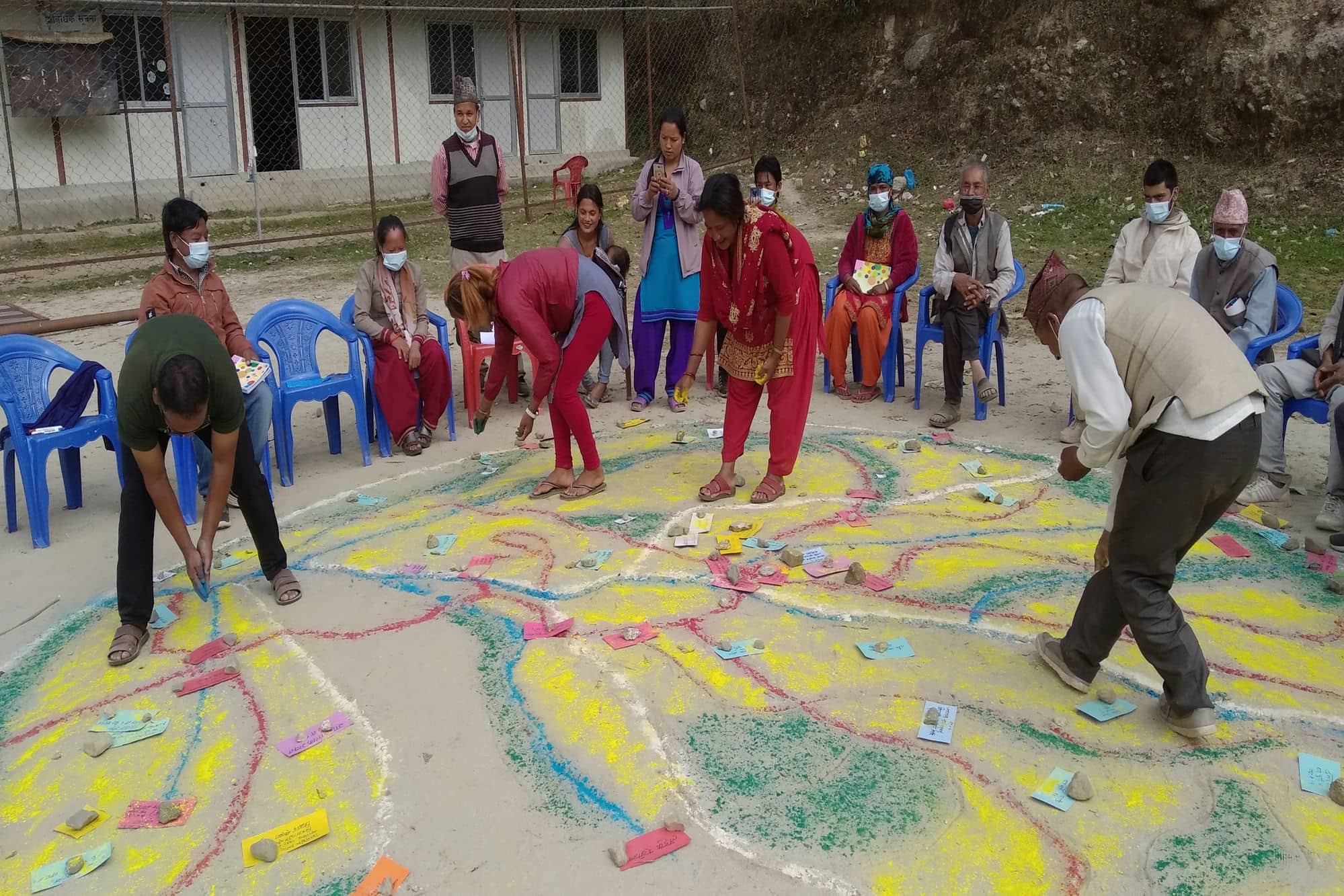Background
The impact of global emission resulting in climate change is affecting geographically and ecologically fragile landscapes and rural dwellers of Nepal where livelihoods are extremely sensitive to climate variances. The concept of “Eco-Village” is very pertinent when we envisage impacts of climate change in a small mountainous country like ours.
An eco-village is a traditional or intentional community with the goal of becoming more socially, culturally, economically, and ecologically sustainable. It is consciously designed through locally owned resources, participatory processes to regenerate and restore its social and natural environments. It involves community through participatory design process for identification, planning and implementation of appropriate and affordable, renewable energy/climate friendly technology for enhancing livelihood-practices and capacity building activities for climate change adaptation and mitigation in villages. This project specially emphasis on ecological and social dimension of the existing community during the implementation.
The development of eco-village can address climate related vulnerabilities and rural development related issues as it incorporates both climate adaptation and mitigation measures. The EVD concept has been developed for the maximum utilization of local resources and labor, deployment of local knowledge, and capacity and identification of effective environment-friendly alternative for livelihood enhancement. It provides a basket of sustainable solutions, which are decentralized, affordable, robust, low carbon and emphasize on the productive utilization of local resources to fulfill needs and wants of vulnerable communities. This concept brings the deprived communities, especially women, poor, and marginalized groups to the mainstream and enhance their capacity socially, environmentally and economically for the empowerment and also commit priority to equal gender participation.
The bundle of EVD solutions includes mitigation measures like household biogas plants, improved cook stoves, solar PV, solar thermal, solar drying unit, improved water mills to generate electric power, stand-alone systems like Pico /micro-hydro power for rural electrification. It also includes adaptation measure such as organic farming, plastic tunnel farming, roof-rain water harvesting and water-lifting technologies like hydraulic ram pumps. The hydraulic ram pump earlier supported by GEF in Kavre district has positive impacts to the rural livelihoods integrating with improved water management practices resulting to improved agricultural / livestock production and improvement in sanitation and health. Hydraulic ram pumps are promoted wherever feasible.
An important part of EVD is planning of the appropriate solutions for each area and each village, to be chosen according to needs of community, climate, livelihood, and available resources. The EVD solutions are not limited to introducing a climate friendly technology; they also include the maintenance training and support for long-lasting use as well as other frameworks such as funding mechanisms in order to have a long-term progression of living standards in a sustainable way.
The project “Eco-Village Development through Integration of Renewable Energy Solutions and Climate Friendly Activities for Enhancing Livelihood of Rural Communities in Bethanchok Rural Municipality” was implemented in Bhangala, Ward No. 5 of Bethanchowk Rural Municipality, Kavrepalanchowk district where most of the household are dependent on agro-based livelihood. To implement this proposed project, CRT/N has coordinated with the Ward Office and Bethanchowk Rural Municipality. Altogether 100 households from the project area were benefited by the EVD project.
Objectives
To improve rural livelihood through integrating EVD solutions with agro and enterprise-based options to strengthen rural development and reduce poverty while limiting GHG emissions and adapt to climate change impacts.

